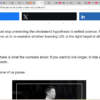🔴 Website 👉 https://u-s-news.com/
Telegram 👉 https://t.me/usnewscom_channel
Alex Burghart is Shadow Duchy of Lancaster and Shadow Northern Ireland Secretary, and MP for Brentwood and Ongar. Jesse Norman is Shadow Leader of the House of Commons and MP for Hereford and South Herefordshire.
Kemi Badenoch has rightly said that the renewal of public trust in politics, and of the Conservatives as a party of government, must meet five threshold tests.
These tests are simple to state, but hard to achieve. First, that Britain must be able to control its borders and remove those with no right to stay. Second, that our veterans should be shielded from vexatious legal pursuit decades after their service. Third, that British citizens should have priority in access to public services. Fourth, that the decisions of Parliament should be respected, in relation to prison sentences and other controversial legislation. And fifth, that the system of planning and funding infrastructure should not be paralysed by excessive and vexatious litigation.
These tests will strike many readers as simple common sense, but they cut to the heart of the political compact. A future Conservative government must be able to demonstrate, not only that it is worthy to govern, but that it has the means to govern in its hands.
At the centre of the five tests lies a cluster of legal challenges: some home-grown, others imported. In a closely argued opinion published today, Lord Wolfson KC shows how they arise from treaties and legislation, including the international and European conventions against torture, the Modern Slavery Act and the Refugee Convention, and how these in turn are interwoven with the European Convention on Human Rights (ECHR) and its judicial body, the Strasbourg court.
It follows, then, that to meet these tests, the UK will need to withdraw from the ECHR. This is not a step to be taken at all lightly.
The Convention was agreed in the aftermath of the Second World War. Britain was its prime architect. Its intention was noble: to protect basic liberties from despotic regimes and prevent tyranny from returning to Europe.
Yet over time the ECHR has become transformed into something very different: a supranational instrument by which domestic legislation, much of which was never imagined to lie within its scope, can be suspended, diluted or blocked outright. And numerous efforts to press the Court to curb that expanding scope in recent years have failed.
Consider the problem of illegal migration. No serious country can tolerate a situation in which the integrity of its borders is subject to judicial override from outside its own political system.
But this is precisely the position in which the United Kingdom now finds itself. Successive schemes to control migration have been undermined by court orders, sometimes based on elastic readings of “family life” or “degrading treatment” that bear little relation to the drafters’ original intent.
Or take our veterans. Men and women who served our country in Northern Ireland, with clear rules of engagement, under orders and within a chain of command, now find themselves hounded through the courts, decades after the event, in processes prolonged by recourse to the courts.
Whatever one’s view of past conflicts, it cannot be right that those who fought in uniform for their Queen and country should face an endless prospect of vexatious prosecution.
Or take fairness in access to benefits. The principle that British citizenship is an honour that should carry specific rights and entitlements, and we would say duties, is long established.
Yet the courts have consistently extended equal access to those without such ties, on grounds of non-discrimination. This is not only a distortion of the Convention; it undermines the social fabric, by breaking the link between personal contribution and reward.
Each of these issues must be addressed in its own right. But together they amount to a single challenge: can Parliament legislate effectively, and will that legislation be upheld? On present evidence, the answer is often no.
Some will say that withdrawal means abandoning human rights altogether. This is nonsense. New legislation will of course be needed in the areas above, in part to ensure the right balance is struck as to the checks and balances on executive power.
But Britain’s common law tradition of liberty under law stretches far back in time – to before the Bills of Rights before, even, Magna Carta. Our courts are well able to protect those rights without a codified body of international rights. And its commitment to other obligations, such as the Torture Convention and the Refugee Convention, will remain unchanged.
Other common law jurisdictions such as Canada, Australia and New Zealand have never signed the ECHR, yet their political systems function effectively, their rights are respected, and their parliaments remain sovereign. There is no reason why Britain cannot recover that status.
The deeper issue, however, is larger than migration, veterans or benefits. It is whether our democracy still works. Effective politics depends on Parliament’s ability to make laws and see them carried through. When that ability is lost, responsibility becomes blurred, accountability collapses, and trust in government starts to evaporate.
To leave the ECHR, then, is not so much an act of rupture as of recovery: recovery of our politics, our Parliament, and our democracy.
The post Alex Burghart and Jesse Norman: Why we must leave the ECHR appeared first on Conservative Home.
This content is courtesy of, and owned and copyrighted by, http://www.conservativehome.com and its author. This content is made available by use of the public RSS feed offered by the host site and is used for educational purposes only. If you are the author or represent the host site and would like this content removed now and in the future, please contact USSANews.com using the email address in the Contact page found in the website menu.
